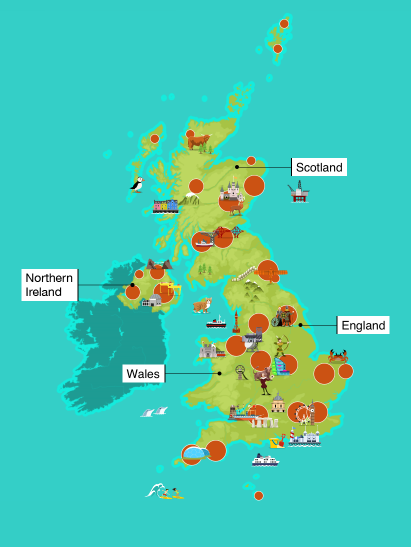Primary Times - the definitive what’s on and where to go family guide of activities and events for children of primary school age. Things to do with your kids during the school holidays including arts and craft activities, music and theatre for children, parties, competitions, days out, and family attractions along with term time drama schools, dance classes, after school clubs and sports activities. Things to do at a place near you!
BBC Terrific Scientific Sleep Investigation reveals 9-11 year olds react better in the afternoons
 A BBC Terrific Scientific investigation, in partnership with the University of Oxford, into children’s sleep patterns following the clock change in March has discovered that surprisingly sleep time increased and sleepiness reduced, against expectations. The investigation also revealed that the children reacted quicker in the afternoon irrespective of clock change.
A BBC Terrific Scientific investigation, in partnership with the University of Oxford, into children’s sleep patterns following the clock change in March has discovered that surprisingly sleep time increased and sleepiness reduced, against expectations. The investigation also revealed that the children reacted quicker in the afternoon irrespective of clock change.
BBC Terrific Scientific invited schools across the UK to keep a sleep diary for three days on either side of the clock change early in the morning of Sunday 26 March. Children from all around the country took part and they conducted a series of tests designed to measure both their tiredness and reaction times in the morning and afternoon.
The children’s results found that sleep time increased by an average of 30 minutes after the weekend. This is contrary to popular belief that you’d expect sleep time to decrease due to the clocks changing and effectively losing an hour’s sleep.
The sleepiness assessment indicated lower alertness in the morning than in the afternoon, which corresponds well with faster reaction times in the afternoon.
Interestingly, many primary schools schedule maths and literacy lessons in the morning when they assume the children will be more awake and open to learning, which these findings may challenge.
The investigation found that on average the children were sleeping over 9 hours 30 minutes, which suggests the pupils are getting the recommended amount of sleep, which is between 9-11 hours. Following the clock change, researchers found the children woke up on average 10 minutes later in the morning suggesting that they were compensating for the loss and this resulted in increased total sleep time.
With reaction times, on average the children were faster in the afternoon than the morning. They also felt less sleepy in the afternoon than in the morning. They reported feeling slightly more sleepy the morning after the clock change, probably due to the internal body clock lagging an hour behind the external time.
Doctors Katharina Wulff and Christopher-James Harvey from the University of Oxford analysed the data and helped designing the Time investigation.
Speaking about the result, Doctor Katharina Wulff says: “The Time Investigation has provided us with sleep and reaction time data of a large, representative sample of 9-11 year old school children across the UK. Results were surprising in two ways, first that children slept longer after the clock change and secondly, their reaction time was faster in the afternoon than in the morning.
The Time Investigation provides a great example of how school children can get directly involved in research, proving perceived public wisdom wrong.”
BBC Terrific Scientific also partnered with the Institute of Physics and Primary Science Quality Mark to deliver the resources for this investigation.



